4 rules for choosing medical care in Russia
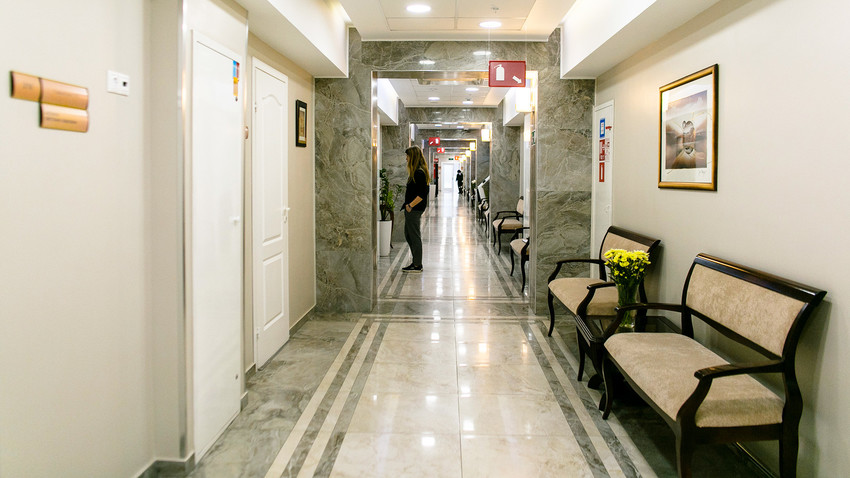
4 rules for choosing medical care in Russia
Mark BoyarskyWhen it’s a question of health, you obviously want to get it right - and if you live in another country it can be a daunting task trying to find the right clinic or treatment. In Russia, there are a few important points you should check thoroughly to make sure there are no hidden surprises when you visit a doctor, no matter how serious the problem.
1. Check for an international quality certificate
The certification of a clinic is the standard it adheres to, so don’t cut any corners when searching. There are many certificates in the medical world and the safety they guarantee varies. But there is a "gold standard" which minimizes risks, be it
In
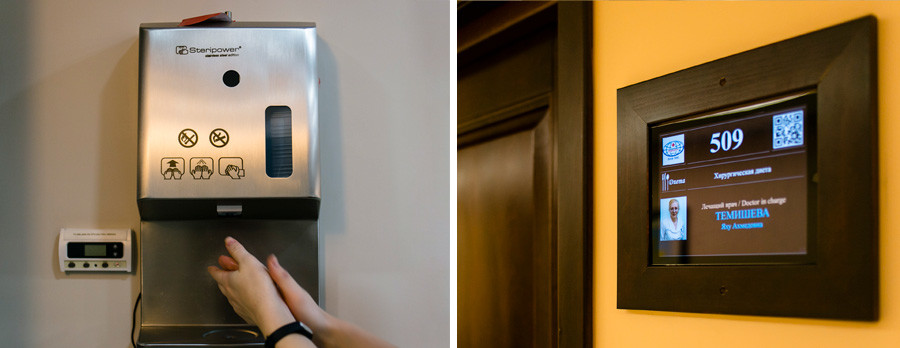
Moscow's Medicina Clinic has a high level of security and confidentiality in all of its units
Mark BoyarskyWhat’s more, before an operation all members of the surgical team talk through the what they plan to achieve and the stages of the surgery to guarantee the entire team is on the same page.
Under JCI requirements, medical providers are supposed to have a pharmaceutical committee to
"The introduced standards and business practices guarantee the highest safety level for patients and medical personnel," says Peter Yaverbaum,

Moscow's Medicina Clinic
Mark Boyarsky2. Focus on service and language support
It’s not just about being able to make an appointment on a website, choosing a convenient time, or booking a return call. In Russia, potential language barriers between a doctor and a foreign patient can be a problem - so availability of foreigner-friendly services is a big plus. They include language support, escorting a patient to the door of the doctor's room, and translation of all information you and insurance companies may require.
The ideal working principle is "one patient - one doctor," Yaverbaum explains. "The idea is that every patient should be assigned a doctor who deals with the patient, participates in organizing care, and is responsible for the patient. We have a big clinic and a hospital with 105 beds. But wherever a patient ends up, they can expect a very high level of service. They will be met and escorted to the doctor, have an examination, and be immediately provided with results," Yaverbaum says.
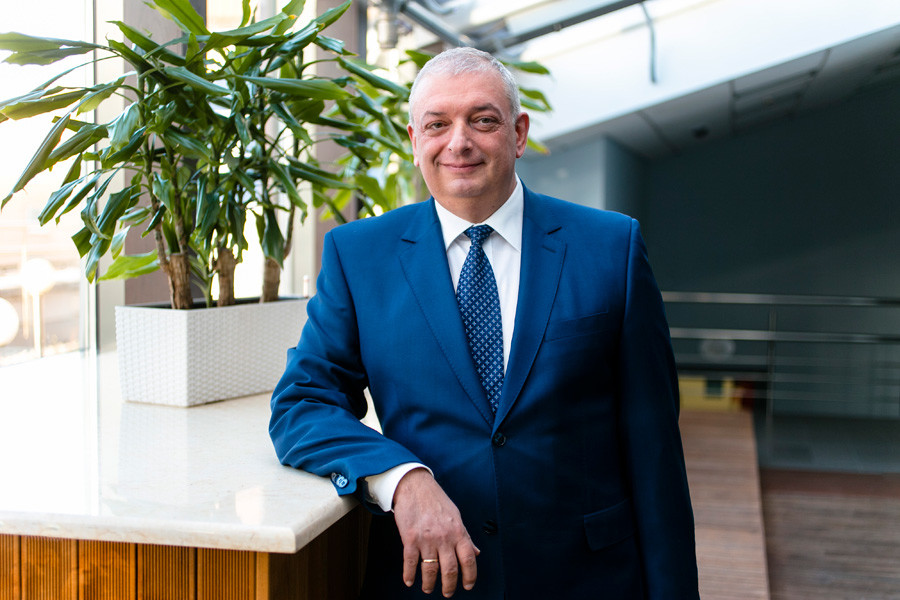
Peter Yaverbaum, Medicina Clinic's director for dealing with insurance companies and sales
Mark Boyarsky3. Find out about availability of expert services
Even if your condition doesn’t need exclusive, technologically complex services, their availability is still important when choosing a clinic. At the very least it indicates that the clinic is keen to develop and be at the cutting edge of technology.
For example, Sofia -
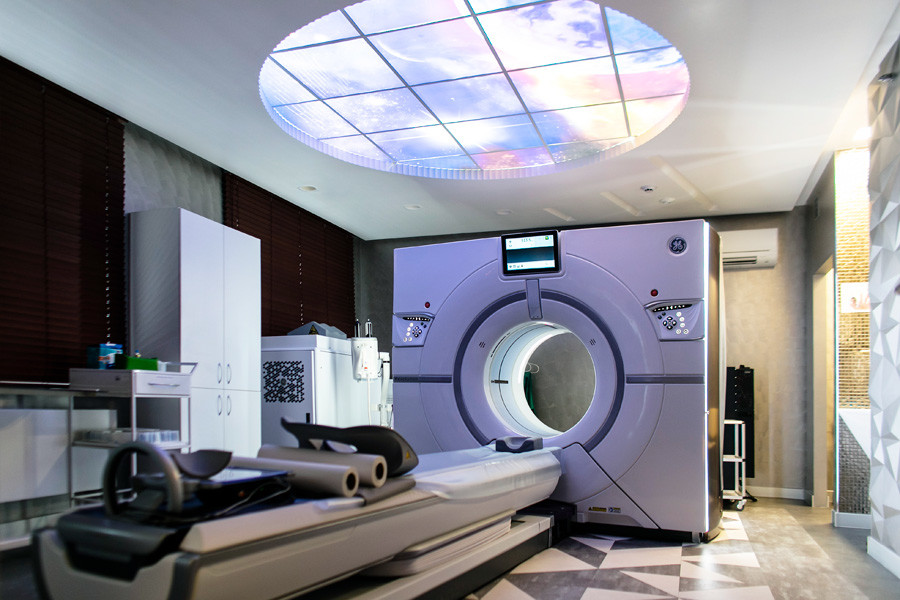
Сomputed tomography scan in Moscow's Medicina Clinic
Mark Boyarsky4. Don't forget about your own insurance company
The ease of payment for medical services depends on contracts with foreign insurers and partners. Ideally, a clinic should have direct contracts with leading Western insurance companies such as Allianz Worldwide Care or BUPA.
Another good option is a clinic's cooperation with assistance companies (for instance, Europ Assistance or AP Companies Global Solutions) which represent Western insurers in the settlement of insurance claims. Payment is agreed and
If your insurer is not included in the list of partners, it is better to find out in advance whether a clinic provides the required statements and reports in English.
In fact, a competently organized medical establishment won't put competition at the core of its ideology, Yaverbaum believes. If a clinic works for the sake of patients' health, it will have a large network of partners, including partner clinics.
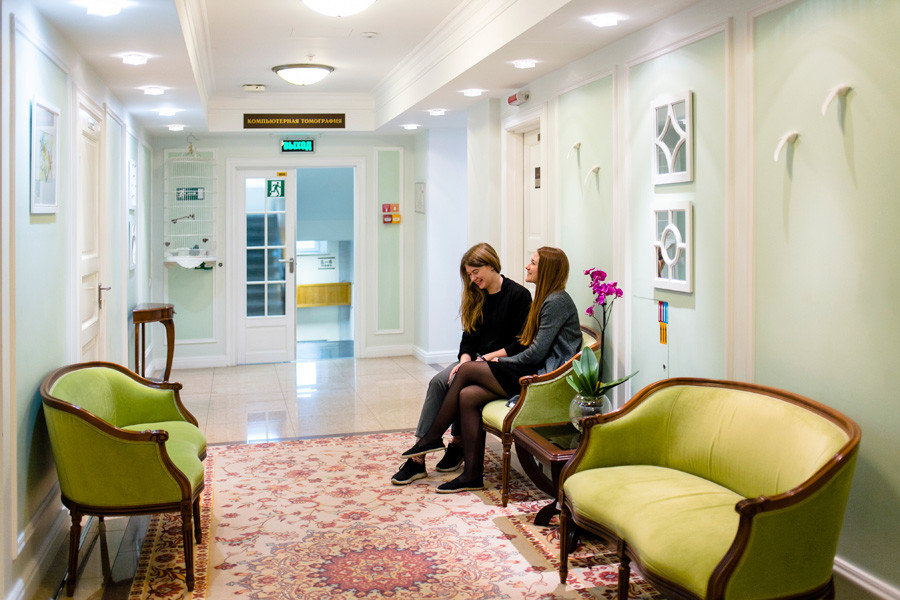
Moscow's Medicina Clinic cooperate with essentially all clinics in Moscow, many across Russia and a certain number of clinics abroad
Mark Boyarsky"As regards to us, we cooperate with essentially all clinics in Moscow, many across Russia and a certain number of clinics abroad - in Japan, Germany, and other European countries. The most important thing is that people should come to a clinic that is clearly structured as far as they and their insurance companies are concerned,"
Reference clock, X-ray, MRI, ultrasound +7 (495) 775-73-60
If using any of Russia Beyond's content, partly or in full, always provide an active hyperlink to the original material.
Subscribe
to our newsletter!
Get the week's best stories straight to your inbox